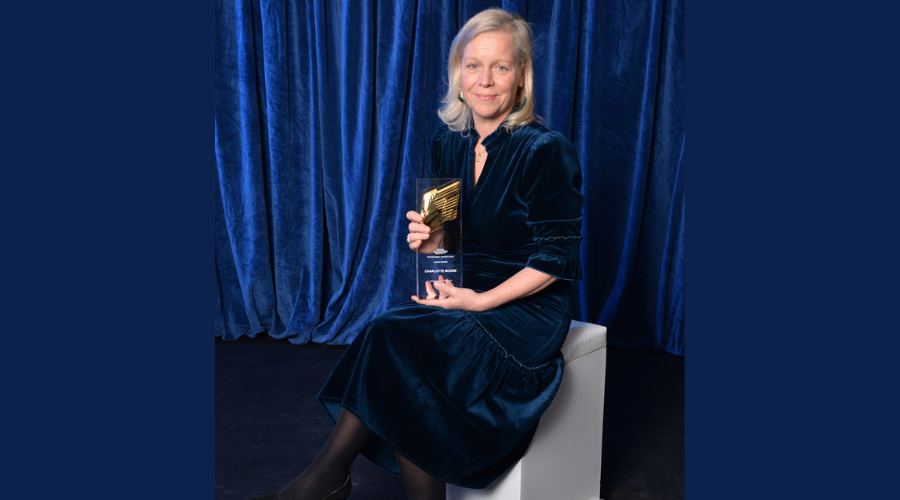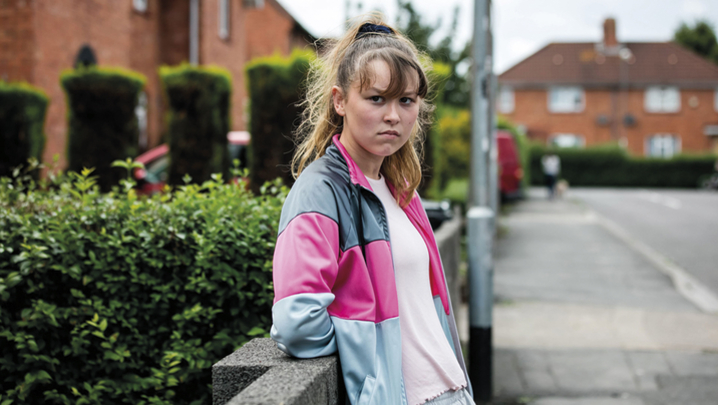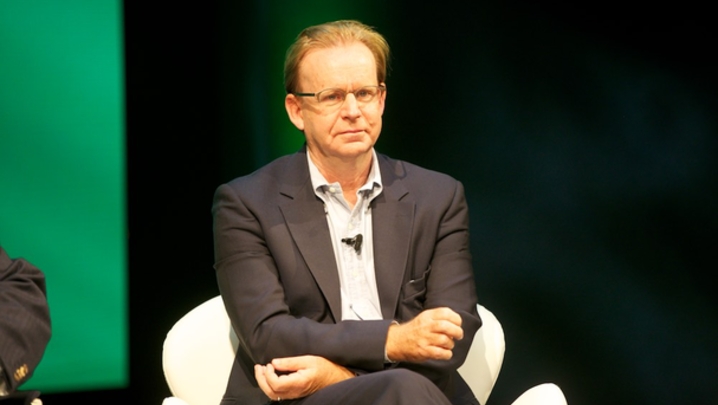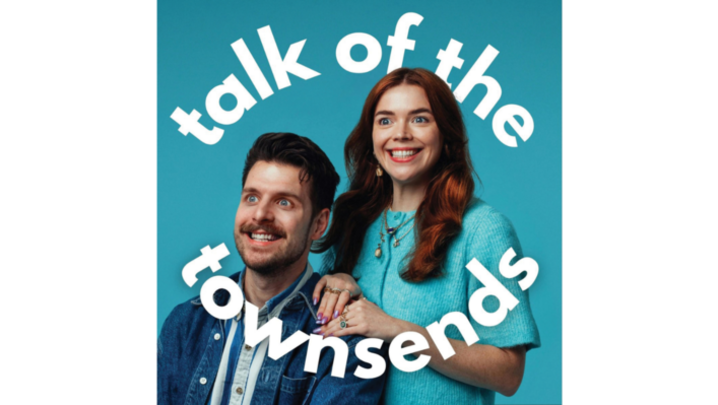Steve Clarke profiles the BBC’s chief content officer, Charlotte Moore, recently presented with the RTS Judges’ Award.
It is rare for the BBC not to be in the crosshairs of a crisis and 2023 has been no exception. Behind the headlines, though, the opening months of the year have been a time of triumph for its creative chief, Charlotte Moore. The BBC has dominated the TV awards season. At the RTS Programme Awards, the corporation pocketed 17 out of a total of 30 awards.
Across scripted and unscripted, TV and radio, reviewers agreed that, of late, the Beeb has consistently hit the high notes with shows such as This Is Going to Hurt, The Gold, Blue Lights, Chris Packham’s Inside Our Autistic Minds, The Traitors and The Coming Storm.
For Moore, the icing on the cake was receiving the RTS Judges’ Award in recognition of having led the corporation “through one of the most momentous years in its history [and having] done so with an exceptional combination of steadfast level-headedness, confidence and creative flair”.
The citation added: “Charlotte’s been an outstanding leader for the BBC’s content. She’s championed it, defended it, pushed it to be the best it can be. And while doing that, she has remained approachable and accessible… always keen to find the next show that will resonate with viewers, always determined to make the next turn of the wheel.”
For such a powerful BBC executive, Moore tends to avoid the public gaze, generally limiting herself to a couple of high-profile industry speeches a year. She is not a regular attender at awards ceremonies.
That could be about to change. Last month, she threw herself into the lion’s den by agreeing to answer questions at a lunch hosted by the Broadcasting Press Guild. A wide range of media journalists attended. BBC sceptics the Daily Mail and The Daily Telegraph were there, as was Television. This week, she will give a talk at the Voice of the Listener and Viewer’s Spring Conference.
"Charlotte's been an outstanding leader for the BBC's content. She's championed it, defended it, pushed it to be the best it can be"
Guiding the overall creative and editorial strategy of a behemoth such as the BBC is fraught with dangers. To do so during these fractious times makes the job more challenging still. Moore, though, appears to have risen to the task with a combination of resolve – those who know her attest to her steeliness – and the ability to work consensually and collaboratively in what can be a divisive workplace.
As one senior broadcaster says: “The BBC is facing challenges on several fronts, not least a revolution in the way that content is being consumed. But across the genres – in TV and radio – few could deny that it’s performing well. And this is despite the Tory Government putting the BBC on a diet.”
Andy Harries, who runs Left Bank, producer of The Crown, says of Moore: “Charlotte is very user friendly, with broad taste, is smart and calm, and tries hard to surprise and excite people with her appointments.” For example, appointing Lindsay Salt as director of drama, he says, “was bold and bucked expectations.”
Her brief is, to put it simply, all encompassing. Here is the official summary of the chief content officer’s responsibilities: “She oversees commissioning for all the national TV channels and BBC iPlayer, as well as commissioning and production for all 10 national radio networks and for BBC Sounds. She also oversees commissioning and production for all children’s and education content. The role is the creative lead for all of the BBC’s key genres and portfolios.” For good measure, Moore also oversees the under-rated BBC Films.

At the Broadcasting Press Guild lunch, asked by Television how she approached such a big job, she said: “You obviously need to have a good team and people who know what they are doing. Also, I’m not an expert in every area. I have to think about how I can add value and… about what I can bring with the experience of seeing it as a whole, at that macro level which helps make what [the commissioners] are doing more meaningful.
“A lot of my job is about helping to make those connections and thinking on behalf of the audience. How does the audience know we’ve got all this? You can’t expect them to navigate their way through the BBC and listen and watch it all. It’s hard enough for you. Imagine what it’s like for the audience. Part of my job is to try to pull that together.”
She added: “My job is to have a creative vision for the next two or three years. While I know what’s happening this year, right now I am in next year or the year after.
“Charlotte is very user friendly, with broad taste, is smart and calm, and tries hard to surprise and excite people with her appointments”
“I’m trying to build the bones of the mix of what we’re doing. Then I’ll go and talk to radio and say: ‘Oh, Mo [BBC Radio’s director of speech, Mohit Bakaya), what have you got?’ Or how can I bring classical music into such and such a project? It’s part of the glory of working for the BBC. My job is to try to make those connections and think: ‘How do I tell the creative story across a year?’
“I spend a lot of my time trying to navigate my way through that and then my team will do the actual commissioning. But I will read most of the [scripts] when we make decisions about which scripts, not because Lindsay [Salt] can’t make her own decisions, but because I need to understand what the mix is that I need to think about.
“I wouldn’t want five Grenfell projects all coming at once. I need to understand what we’re doing and how we’re doing it.
“It is a large brief. When I was asked to do it, I did think, ‘How on earth am I going to do that?’ But, if I hadn’t done my previous job [director of content], I wouldn’t have been able to do it.… I’ve taken a more macro view and therefore empowered people working with me to get on with their jobs.”
Moore is more than two years into the job, having been appointed in September 2020. She joined the BBC in 2006 as a documentary commissioner following a spell working as an independent. “When I first met her, she struck me as a hard-nosed documentary-maker,” says one producer. Moore read history at Bristol University after attending Wycombe Abbey, an independent girls’ school in Buckinghamshire.
At the Scottish company, Ideal World Productions, she attracted attention for such documentaries as the RTS award-winning Living with Cancer and Great Britons: Churchill. She was promoted to head of documentaries at Ideal World before joining IWC Media as head of factual.

Her rise through the ranks at the BBC was impressive. By 2009, she was commissioning editor for documentaries, where she won a reputation for favouring what were described as “clever, authored pieces”, such as the controversial documentary on euthanasia, Terry Pratchett: Choosing to Die, although her department also ordered such hits as The Great British Bake Off and The Choir.
In 2013, she spent a few months as acting controller of daytime before being selected as BBC One controller in June that year, only the third woman to land what was then regarded as one of the key editorial jobs in the BBC. Her hits included The Night Manager, Doctor Foster, Peter Kay’s Car Share, and The Great British Bake Off, with the 2016 final of the latter attracting more than 14 million viewers.
When, in 2016, the then-Director-General Tony Hall decided to abolish the controllerships of BBC One and Two as part of an efficiency drive – these posts had existed for half a century – the unflappable Moore was put in charge of all broadcast channels and added the highly regarded iPlayer to her responsibilities.
The erstwhile documentary-maker was destined to rise further still; later in 2016, she became the BBC’s first director of content. She was shortlisted to succeed Hall in 2020, but lost out to Tim Davie. Significantly, one of Davie’s first appointments was to make her chief content officer. There may have been a misstep in deciding to bring back BBC Three as a linear channel. The jury is still out on that decision.
Should Moore’s current winning form continue, a second stab at the director-generalship could make Moore the first woman ever to run the BBC. Inevitably, this question came up at the recent BPG lunch, but the content supremo adroitly sidestepped it.







